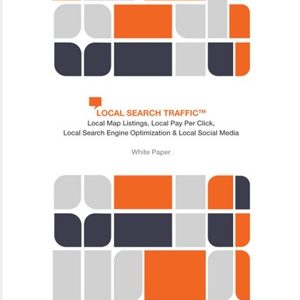
This post is sponsored by ReviewInc, and the opinions expressed here are those of the sponsor.
You receive a notification about a new review in your inbox. Next, you hold your breath and hope for the best before opening the email, bracing yourself for a negative review. Business owners often experience this anticipation, understanding that, much like a picture, a review can convey a lot, even with limited characters.
It’s well-known that consumers heavily rely on reviews when making business decisions. Consequently, your initial impulse might be to present only the positive aspects and steer clear of any negativity. However, sometimes what seems bad can actually be beneficial.
Should I Remove Negative Reviews?
Surprisingly, no, you shouldn’t delete negative reviews. While it might seem counterintuitive, negative reviews can have a very positive impact on your brand, sales, and search engine visibility. Let us explain.
Can Bad Reviews Be Good?
Yes! Bad reviews can be beneficial, especially in the context of online reviews.
Why Is Some Negativity Good When It Comes to Online Reviews?
Believe it or not, having too many positive reviews can raise consumer suspicion. A 4.7 rating is often more trusted than a perfect 5-star rating, according to a study by ReviewInc. This is because consumers are aware of some businesses manipulating reviews through falsification or incentives, and they can detect when something seems too perfect.
Additionally, the FTC has strict rules against bribing customers for positive reviews, and violating these rules is not advisable. A good rating that includes negative reviews indicates authenticity, regardless of the platform.
How Often Do People Leave Bad Reviews?
The good news is that bad reviews are not as common as one might think. A 2022 survey by ReviewInc found that 65% of people do not leave bad reviews even when they have a negative experience. This is encouraging news.
Interestingly, the survey showed no measurable gender difference, with all genders equally reporting a tendency to avoid writing negative reviews. In essence, the likelihood of receiving a positive review is much higher than getting a negative one. According to ReviewInc’s findings, 92% of reviews are positive, with 96% of those being 5-star ratings. Less than 5% are 1-star reviews.
How Negative Reviews Help SEO & Online Reputation Management
By maintaining and managing your negative reviews with online review management tools, your overall ratings can:
- Enhance your SEO & visibility in searches.
- Boost trust, loyalty, and your customer base.
- Provide insights for business improvement.
1. Negative Reviews Provide Authentic SEO
Reviews and ratings on platforms like Google, Facebook, and Yelp influence SEO rankings. Google states that quality, positive reviews can enhance business visibility and increase the likelihood of attracting visitors. Engaging with all reviews and responding appropriately is a good practice for improving local SEO and reputation.
Negative reviews provide a necessary balance, as a surplus of fake positive reviews might lead to their suspension, negatively impacting SEO. So, don’t worry about receiving a negative review—it can be beneficial.
2. Negative Reviews Build Brand Trust & Loyalty
According to Neil Patel, Yelp averages a review score of 3.65, which is lower than other platforms. However, reviews, even negative ones, help in setting consumer expectations. They are vital for authenticity, potentially leading to higher sales.
Responding sympathetically to negative reviews helps:
- Contextualize the review for future customers.
- Show that you understand customer needs and will accommodate them.
- Demonstrate to reviewers that you care about their experience.
This approach may prompt reviewers to update their feedback to a higher rating.
How Do I Respond to Negative Reviews?
Although negative reviews might initially cause concern, a well-crafted response can neutralize their impact. How you handle the situation is more important than the negative review itself, and your response can enhance customer confidence in your business.
3. Negative Reviews Help Improve Business Operations & Profits
Even a 1-star review can be beneficial. Negative reviews highlight areas needing improvement, which is crucial in today’s competitive landscape. They might reveal:
- Faulty products.
- Team members requiring guidance.
Negative reviews don’t have to be detrimental; they can be catalysts for improvement and strengthened customer service.
How to Manage All Your Reviews
Given the importance of online reviews and ratings, having a robust online reputation management strategy is essential. Monitoring and responding to reviews, along with campaigning for more, will elevate your business reputation and SEO. Reputation management software enables quick and appropriate responses to reviews, alleviating the stress of addressing negative feedback.
Image Credits
Featured Image: Phoenixns/Shutterstock



